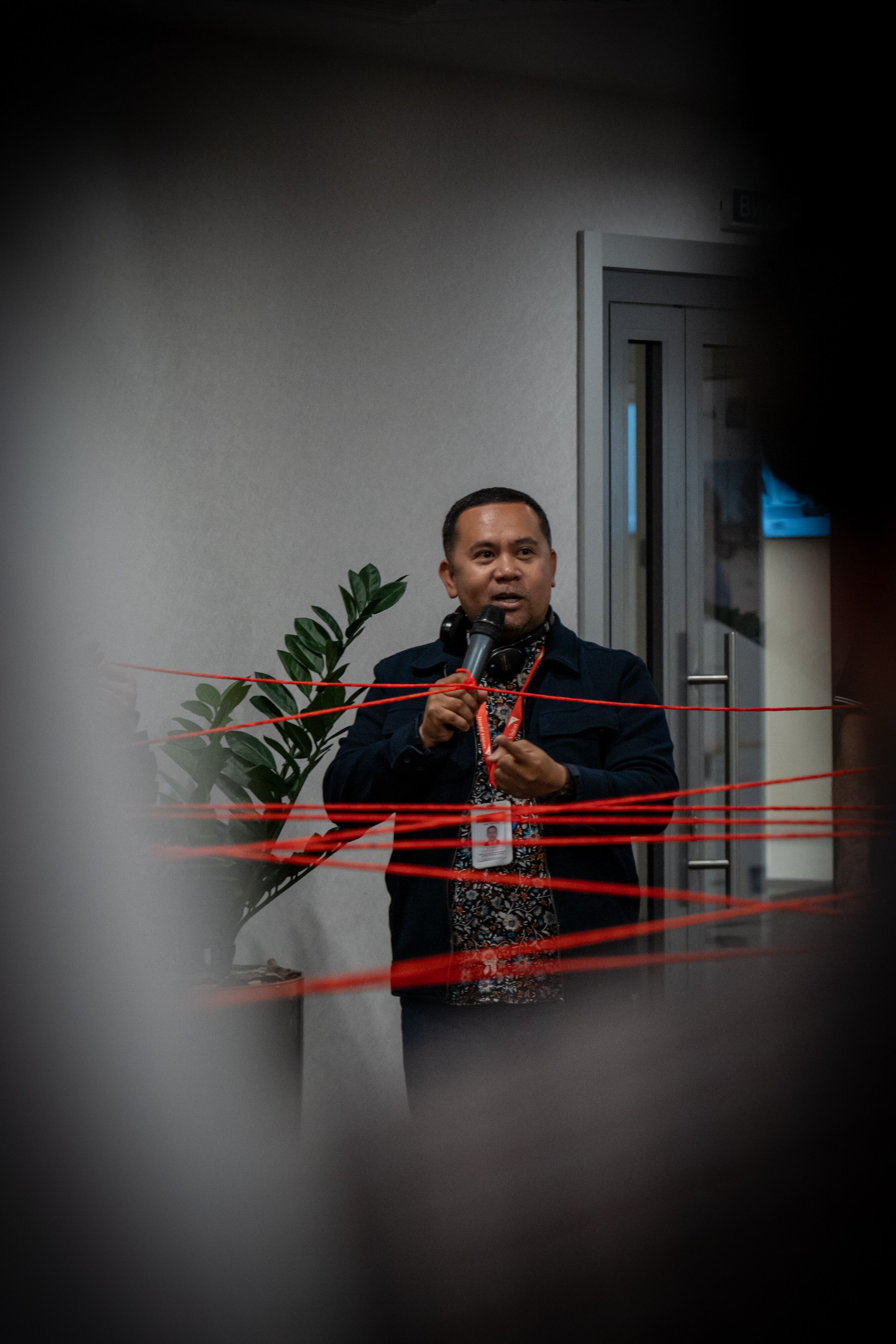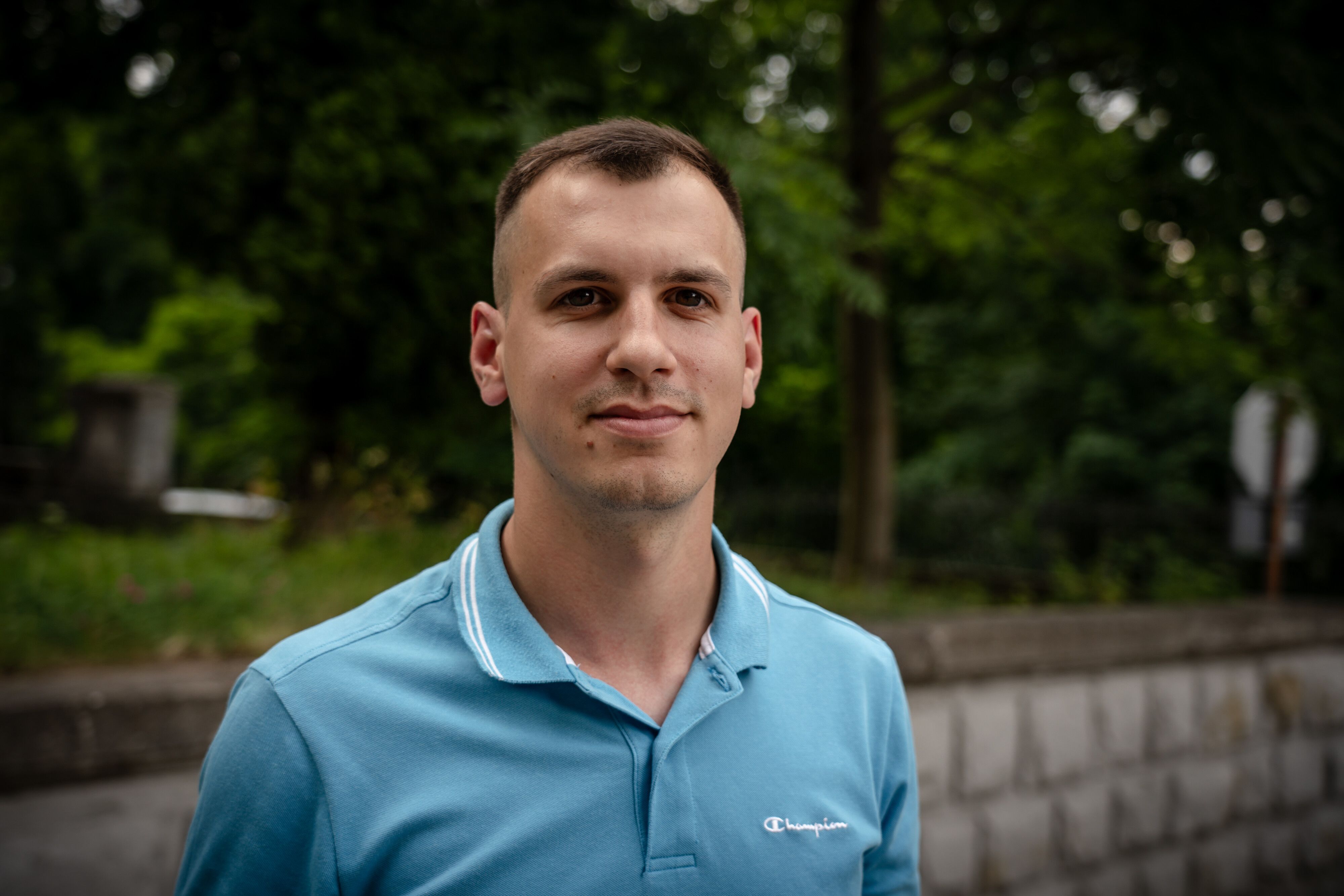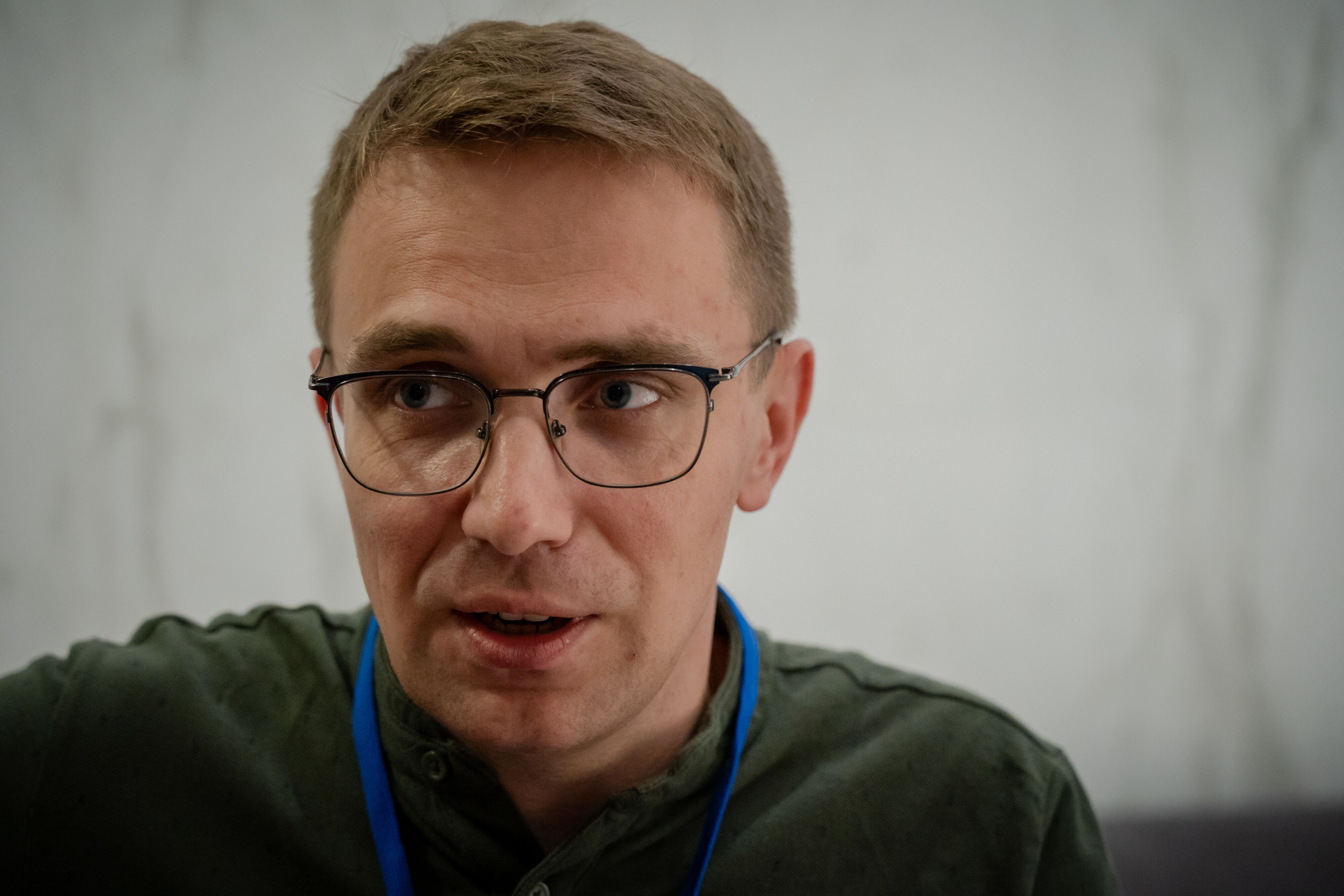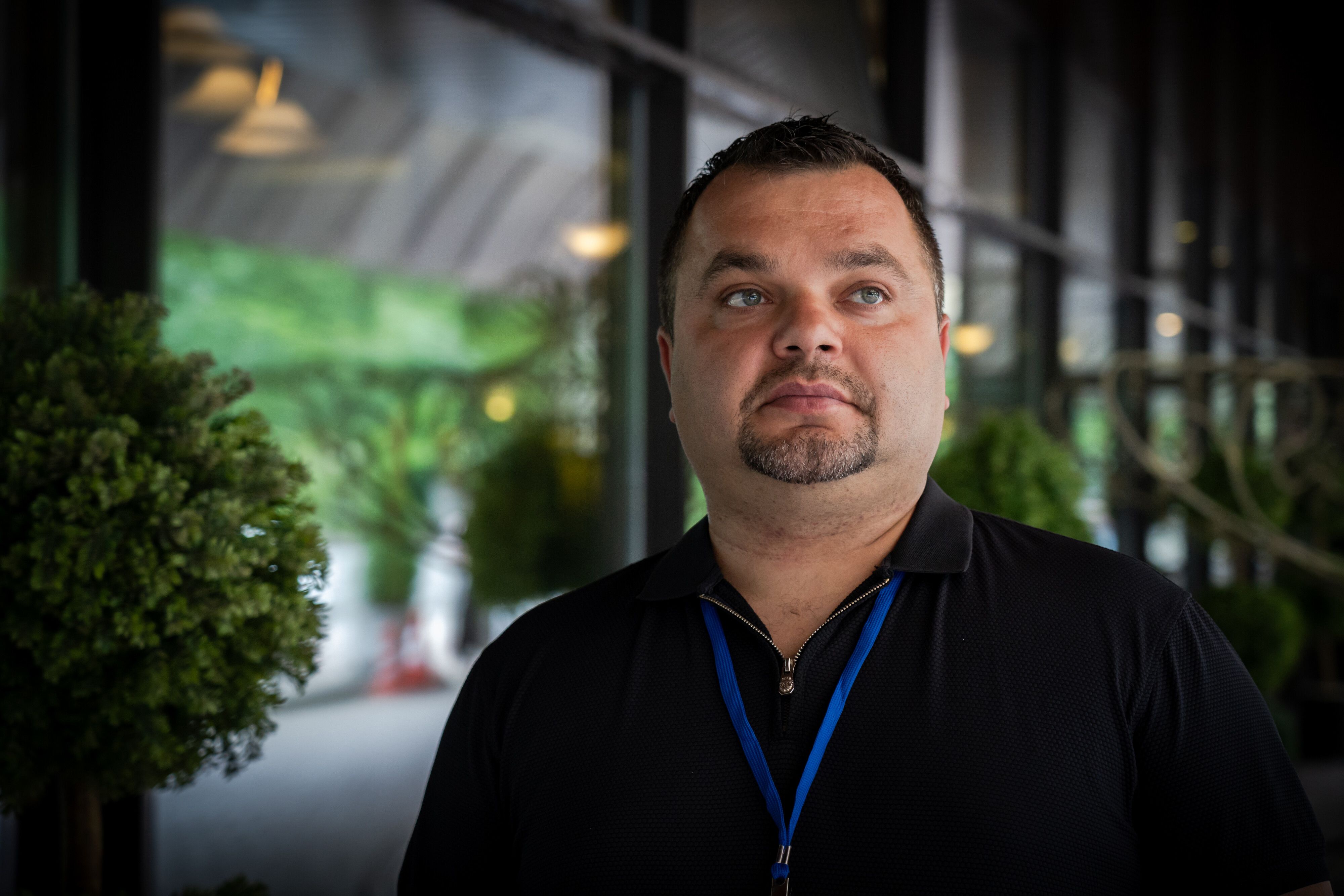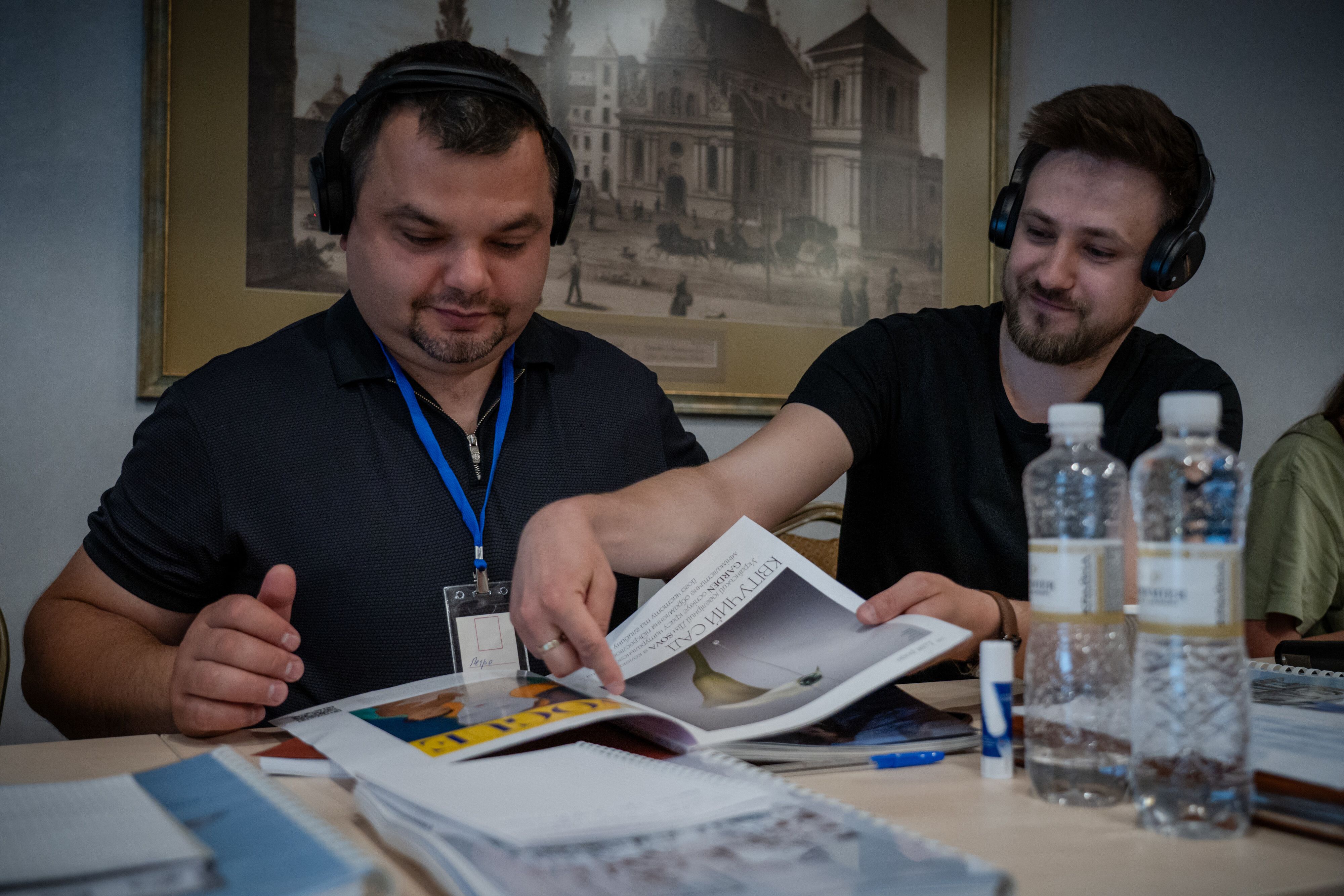Ukraine’s faith leaders trained to support mental health
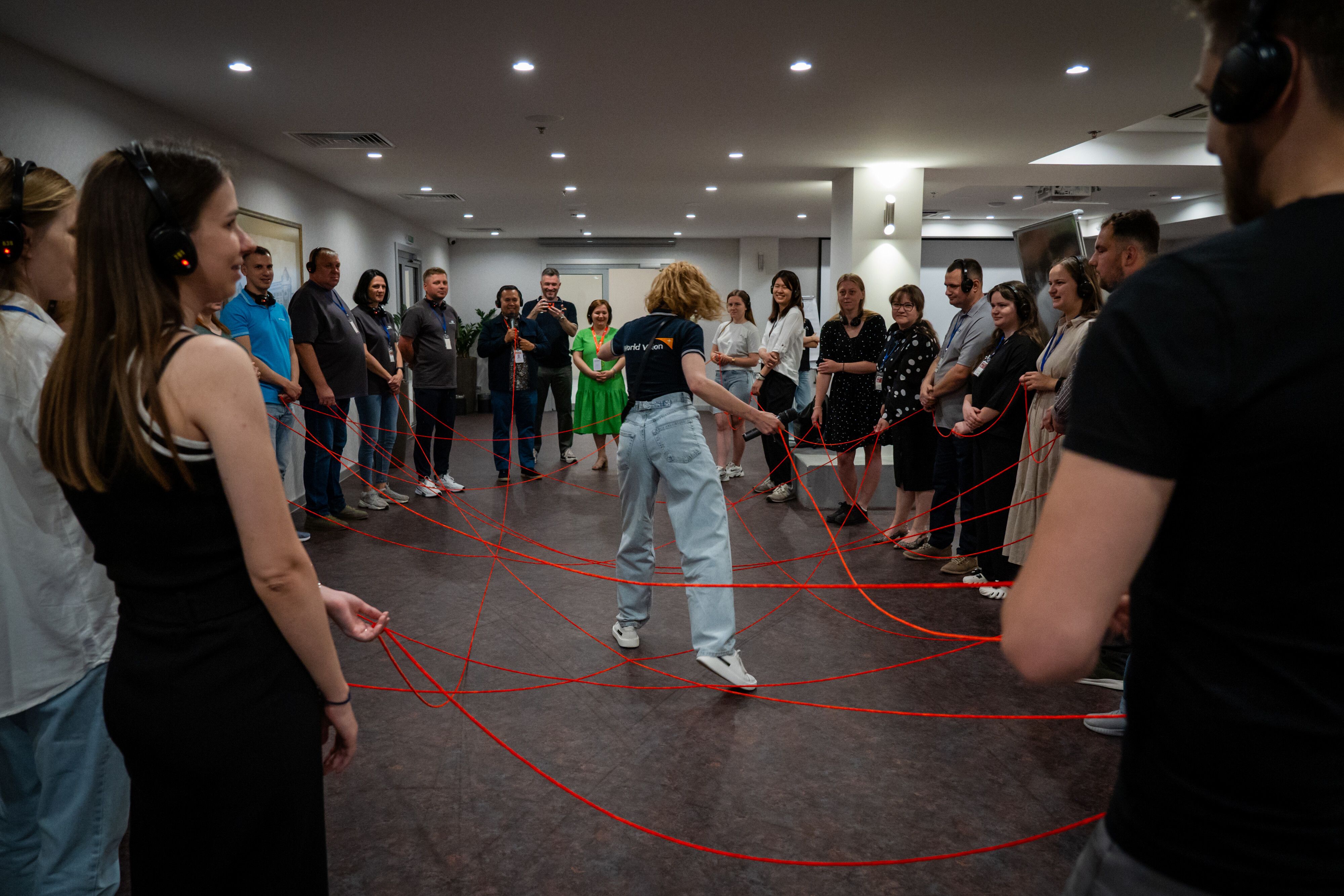
World Vision’s mental health and psychosocial support technical advisor, Aladin Borja, leads a training.
World Vision’s mental health and psychosocial support technical advisor, Aladin Borja, leads a training.
In hard times, people often turn to their local church leaders for comfort and guidance. Faith leaders are trusted in communities around the world. It’s no different for Ukrainians dealing with the ever-present dangers of the war that’s lasted more than two years.
Faith leaders see the need for training on how to support their congregants and the people in their communities. Mental health and psychosocial support (MHPSS) training is crucial for members of faith groups who often become the only source of such services, especially in hard-to-reach areas such as communities close to the front lines.
In Lyiv, Ukraine, World Vision hosted a 5-day psychosocial support training for faith leaders and youth group members. More than 30 people attended the event, led by Aladin Borja, World Vision’s mental health and psychosocial support technical advisor.
World Vision worked with USAID’s Bureau for Humanitarian Assistance, ACTED Ukraine, and the Ukraine Response Consortium to provide classes that focused on non-specialised psychosocial support interventions. The training included evidence-based low-intensity methods developed by the World Health Organisation called Problem Management Plus (PM+), Self Help Plus (SH+), and Social and Emotional Learning (SEL).
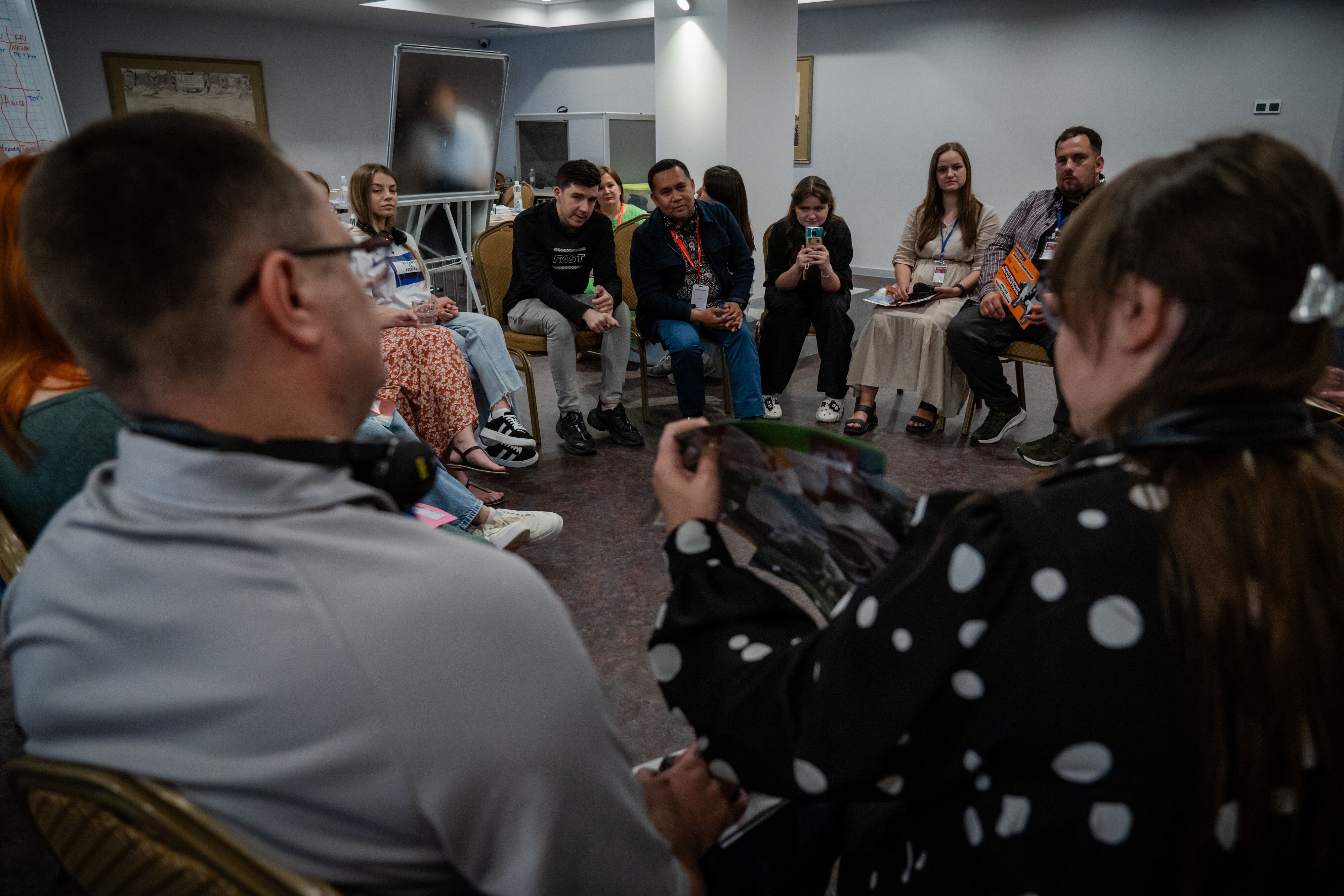
Participants learned how to manage stress, strengthen social support, stay healthy, and look into the future. The training taught them how to reach at least 30 participants or more using picture sets and audio files delivered in the language of the people they would be teaching. Social and Emotional Learning lessons aimed to help young people build self-awareness and social awareness, self-management, positive relationship building, and responsible decision-making.
Aladin says this training is crucial for faith-based organisations, as they often serve as an entry point to mental health and psychosocial support services. He adds that churches and faith communities can help minimise the stigma around mental health issues.
Supporting pastors
Daniel Lugovskiiy, a pastor from the town of Marhanets in central Ukraine, lives mere kilometres from the front line. “Right now, I see that there are no mentally stable people around me. People are losing faith in the future, growing desperate with every day,” he says.
“We desperately, critically need knowledge that will help us support our people and give them self-help instruments. My dream and ultimate goal is for our whole town, thousands of people, to go through [this] training.”
“Our church is trying to give all the love we have to our community ...”
To Daniel, such training is the first step in future growth for his church as well as himself. He says, “Our church is trying to give all the love we have to our community, but I understand that we need to grow and support people more professionally. For me, this training is the foundation, but now I’m seriously considering receiving a formal qualification in the field.”
Oleksandr
“ Our society is losing its children because of this war,” Oleksandr Taraba, a pastor from Dnipro, says. “We encounter a lot of children with zero interests, zero desires. Parents are forced to deal with ongoing problems — making a living, stress, safety. One or two years don’t mean much to us adults. But children grow up so quickly,” he adds.
“One or two years don’t mean much to us adults. But children grow up so quick.”
“In two or three years a child becomes a teenager, and that’s when the fundamentals of their future life and personality are cemented ... They lose this crucial time,” explains Oleksandr.
Peter and another faith leader work on a project during the psychosocial training.
Peter and another faith leader work on a project during the psychosocial training.
Peter
“If I’m honest with you, before the war, when there were rumours that the war would start, I thought I would leave,” says Peter Loboiko, a faith leader from Kharviv, Ukraine. “But when it began, I couldn’t, I physically could not. When I imagined leaving, I felt physically sick: my legs would go numb, I felt uneasy and nauseous. I felt I was needed there.”
Peter and his wife began sharing food from his wife’s business to help people hiding in the basements in nearby buildings. Later, they began to evacuate people from the hotspots in their city — places where even emergency services and the police wouldn’t go. People ask Peter and his wife when they plan to leave. He responds: “When we evacuate the last person out of Kharkiv.” But many people stayed, and Peter and his wife stayed too.
He says, “Before the war, I preached to people. My neighbours knew that I am a man of God, a pastor. To take off and leave, to me meant to betray the people to whom I preached about God and faith.”
“It is an opportunity for us to learn, get some inspiration, and go back to serving and helping our people.”
He explains that even before the war, people looked at priests as the source of faith, wisdom, knowledge, and understanding. “In times of crisis, there is even a bigger demand. Therefore, it is crucial that priests and pastors are qualified,” Peter says. “There are times when you need to understand the person’s psychology, their trauma, and give the right counsel, the right guidance. Then you can actually help. On top of spiritual help, help through prayer, you must give the right psychological support.”
That’s why this training is so critical for Peter. “I came to this training not only to learn to help others, but also to get a breath of fresh air for myself,” he says. “It is an opportunity for us to learn, get some inspiration, and go back to serving and helping our people.”

Planting the seeds for peace
World Vision intends for the training to help faith leaders learn the art of self-care. World Vision trainer Aladin shared with participants that they first need to care for themselves. This way, when they return to their war-torn communities, they’re able to help adults, as well as children and youth, suffering from the emotional and mental fallout from the conflict.
“[Young people] are the country’s repository of peace and hope,” says Aladin. “By addressing their plight amidst the backdrop of the ongoing armed conflict, intergenerational trauma may be arrested and the groundwork for peace and social cohesion may be planted today.”
Story published on July 31, 2024
Help children and families affected by the Ukraine crisis

